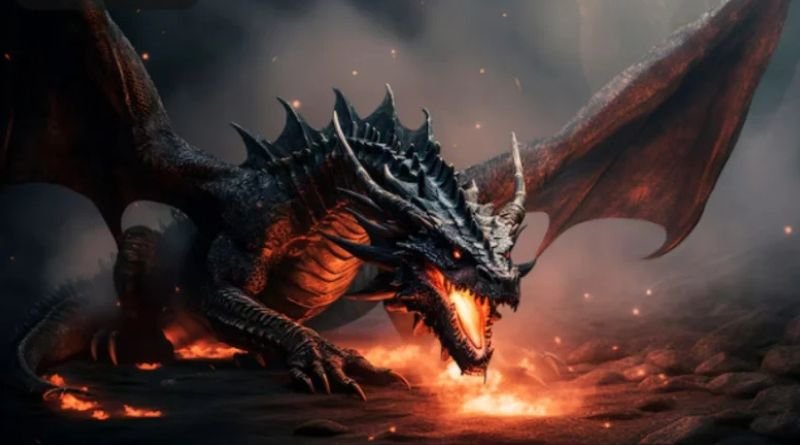Dragons have long captivated the human imagination, appearing in myths, legends, and folklore across cultures worldwide. These mythical creatures are often depicted as enormous, fire-breathing reptiles that possess immense power and wisdom. The title “mythical: zvxixvphgea= dragon” invites us to explore the fascinating world of dragons, their origins, and their significance in various cultures.
Table of Contents
The Origins of Dragons
The concept of dragons dates back thousands of years, with their earliest representations found in ancient civilizations. The word “dragon” comes from the Greek word drakon, which means “serpent” or “giant sea fish.” Different cultures have their unique interpretations of dragons, often reflecting the values, fears, and aspirations of the societies that created them.
Western Dragons
In Western mythology, dragons are typically portrayed as malevolent creatures. They are often depicted as large, winged, fire-breathing reptiles that hoard treasure and guard their lairs jealously. Legends such as that of St. George and the Dragon exemplify the classic battle between a heroic knight and a fearsome dragon, symbolizing the triumph of good over evil.
Eastern Dragons
Conversely, dragons in Eastern cultures, particularly in Chinese mythology, are viewed more favorably. Chinese dragons are considered benevolent beings associated with water, weather, and agriculture. They are often depicted as long, snake-like creatures that can control rain and rivers. The dragon is a symbol of power, strength, and good fortune, often appearing in festivals and celebrations, such as the Chinese New Year.
Mythical Creatures Across Cultures
Dragons appear in various forms across many cultures, each with unique characteristics and significance:
- Norse Mythology: In Norse mythology, dragons like Fafnir are depicted as greedy and destructive. Fafnir was originally a dwarf who transformed into a dragon due to his greed for gold.
- Mesoamerican Mythology: The Aztec feathered serpent god, Quetzalcoatl, is often considered a dragon-like figure. This deity represents wisdom, wind, and rain, and plays a crucial role in creation myths.
- Indian Mythology: In Hindu mythology, the serpent deities known as Nagas are dragon-like beings associated with water and fertility. They are often depicted as protectors of treasures and sacred sites.
Dragons in Popular Culture
Dragons have continued to be a significant presence in modern storytelling, appearing in literature, films, and video games. Notable examples include:
- “The Hobbit” by J.R.R. Tolkien: Smaug, the dragon, is a central character, representing greed and the desire for power.
- “Game of Thrones” by George R.R. Martin: The series features dragons as powerful and awe-inspiring creatures that can alter the course of history.
- Animated Films: Movies like “How to Train Your Dragon” portray dragons in a more whimsical and friendly light, emphasizing companionship and adventure.
FAQs About Dragons
1. What do dragons symbolize?
Answer: Dragons symbolize various concepts depending on the culture. In Western mythology, they often represent chaos, greed, and destruction, while in Eastern cultures, they symbolize power, wisdom, and good fortune.
2. Are dragons real?
Answer: Dragons, as they are typically depicted in mythology and folklore, do not exist in reality. However, many believe that they were inspired by real animals such as crocodiles or large reptiles.
3. Why are dragons often depicted as fire-breathing?
Answer: The ability to breathe fire is a characteristic often associated with dragons in Western mythology. This feature emphasizes their power and fearfulness, making them formidable adversaries.
4. How do dragons differ in Eastern and Western cultures?
Answer: In Western cultures, dragons are often seen as evil and destructive creatures, while in Eastern cultures, particularly in China, they are viewed as benevolent and wise beings that bring good fortune.
5. What role do dragons play in modern media?
Answer: Dragons continue to be popular in modern media, appearing in books, movies, and video games. They are often used to explore themes of power, friendship, and adventure, providing a rich source of inspiration for storytelling.
Conclusion
Dragons are enchanting and complex figures that embody a wide range of meanings and symbolism across different cultures. From their fearsome portrayal in Western myths to their revered status in Eastern traditions, dragons captivate our imagination and inspire countless stories. As we continue to explore the world of these mythical creatures, we find that they reflect not only our fears and aspirations but also our unending fascination with the fantastical.






